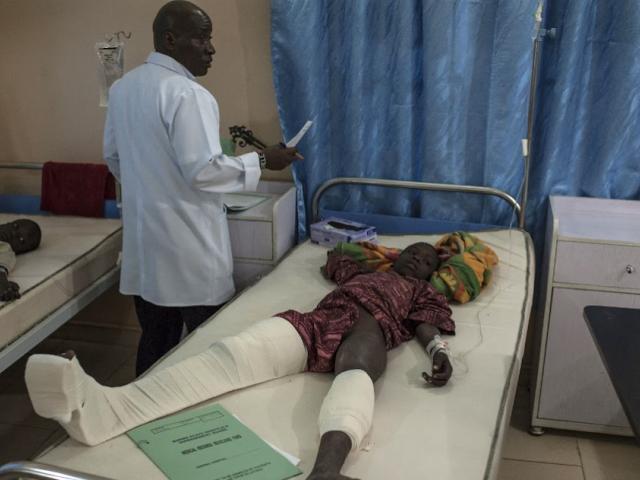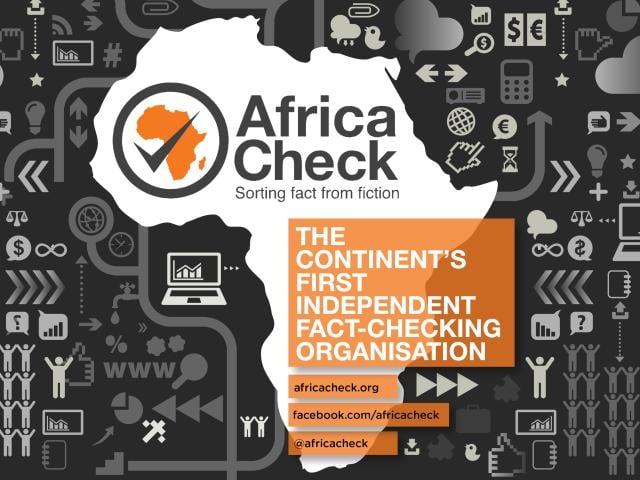-
The Nigeria Medical Association president overestimated by around double the number of doctors who left the country between 2016 and 2018 but was mostly correct about the very small percentage of the world’s health workers who work in sub-Saharan Africa.
-
The doctor-to-population ratio in Nigeria is even worse than claimed, at one doctor to every 5,400 people, not between 4,000 and 5,000.
-
The World Health Organization doesn’t prescribe a minimum ratio for doctor to population. The NMA president was also incorrect that as much as 24% of the global burden of disease falls to Africa.
More than 9,000 medical doctors of Nigerian origin have left the country for greener pastures in the UK, United States and Canada, according to a leading obstetrician and gynaecological surgeon.
The exodus was between 2016 and 2018, Prof Innocent Ujah said, according to an April 2022 report in the Vanguard, a national newspaper. This figure has been widely repeated in subsequent months by other publications.
Ujah, who is the president of the Nigerian Medical Association (NMA), said this was negatively affecting the country’s health systems.
In this report, we checked five claims he made, including on healthcare worker numbers and the continent’s burden of disease.
The NMA’s publicity secretary, Dr Aniekeme Uwah, confirmed Ujah was accurately quoted. But he didn’t share any evidence for the claims.
The Medical and Dental Council of Nigeria, which regulates the professions of medicine, dentistry, and alternative medicine, acknowledged our request for data but had yet to respond at time of writing.
We then contacted the medical registries in the UK, United States and Canada to help us evaluate this claim.
From 2016 to 2018, 1,600 doctors with a primary medical qualification from Nigeria joined the UK register for the first time with a licence to practise, the General Medical Council told us.
“Please note that where a doctor gained their primary medical qualification is not a definitive indication of their nationality,” a spokesperson said.
The Federation of State Medical Boards supports state medical boards in the US in licensing, disciplining and regulating doctors and other healthcare professionals.
Between 2016 and 2018 1,112 Nigeria-educated doctors were issued a total of 1,659 licences, Xiaomei Pei, a research and data integration manager at the federation, told Africa Check. Of these, 80% (887) were actively practising in the US as of 2018.
Pei said that as of 2018, 3,708 Nigeria-educated doctors, with a total of 5,926 full active licences, were practising in the US.
The Canada Medical Association was yet to respond on how many Nigerian-trained doctors migrated to the country in this period. But in a February 2022 report in Nigerian national newspaper Punch, the association said no fewer than 632 Nigeria-trained doctors were practising in Canada as of 2020.
The numbers we have seen are less than half of the NMA president’s claim. But in the absence of definitive data from Canada, and details about nationality, we rate this claim as unproven.
The statement was from a 2010 document, the World Health Organization (WHO) told Africa Check.
“We would suggest considering these [numbers] out of date,” a spokesperson said. The international health agency said the latest global and regional estimates were in the World Health Statistics 2021 report.
According to the report, in 2018 the density of medical doctors per 10,000 people in the African region was 2.8. That of nurses and midwives was 10.3. The report did not have data on pharmacists and dentists.
The WHO counts 47 countries in its Africa region.
Globally, the density of medical doctors, nursing and midwifery personnel was 56.5 per 10,000 population.
What figures from independent research show
For a definitive figure of the region’s health workers, we turned to the Institute for Health Metrics and Evaluation (IHME).
The IHME is an independent global health research centre at the University of Washington in the US. It works with partners around the world to develop scientifically valid evidence on the global state of health.
Ally Walker, an IHME spokesperson, told Africa Check that it was estimated that sub-Saharan Africa had about 3.6% of the world’s health workers.
“The percentage of health workers is taken from our health workers density covariate and our population estimates,” Walker said. (Note: For more on covariates, read here or here.)
Walker confirmed the IHME counted health workers of any speciality. This included doctors, nurses, midwives, and dentistry and pharmaceutical professionals.
The data informing this claim was also outdated, the WHO told Africa Check
Data from the IHME’s global burden of disease study published in The Lancet journal shows the health challenges facing people across the world.
Its latest data is for 2019 and covers 204 countries, 369 diseases and injuries, and 87 risk factors.
From the study “sub-Saharan Africa accounts for 20.1% of the global burden of disease”, the IHME’s Ally Walker told Africa Check.
She said numbers for this were taken directly from the global number of disability-adjusted life years. (Note: Disability-adjusted life years is the summary measure of health combining both morbidity and mortality, as an outcome instead of specific disease incidence or mortality.)
Africa Check has previously investigated a similar claim. In April 2019 the Nigeria Medical Association said there were 40,000 doctors taking care of 200 million people in the country. This amounted to a ratio of one doctor to about 5,000 people.
The Medical and Dental Council of Nigeria had earlier that year said 39,912 doctors were registered with it as of December 2017. This was in response to a freedom of information request by news publisher Premium Times. We have not seen any more recent data from the regulator.
Nigeria’s most recent population estimates show there are significantly more people. The UN Population Fund estimated the population to be 216.7 million in 2022. This works out to a ratio of nearly one doctor for 5,400 people.
A digital population census was supposed to start in May 2022, but it didn’t. The available data shows Ujah’s estimate is conservative and that every doctor in Nigeria has to care for even more people.
The World Health Organization has said it does not prescribe or recommend any ideal ratio. This, a spokesperson has previously told Africa Check, was because there wasn’t a simple answer or one-size-fits-all solution.
Dr Mathieu Boniol, a statistician at the WHO, previously told Africa Check that “a country’s number of healthcare workers should be adapted to its needs and the characteristics of its national health labour market”.








Add new comment